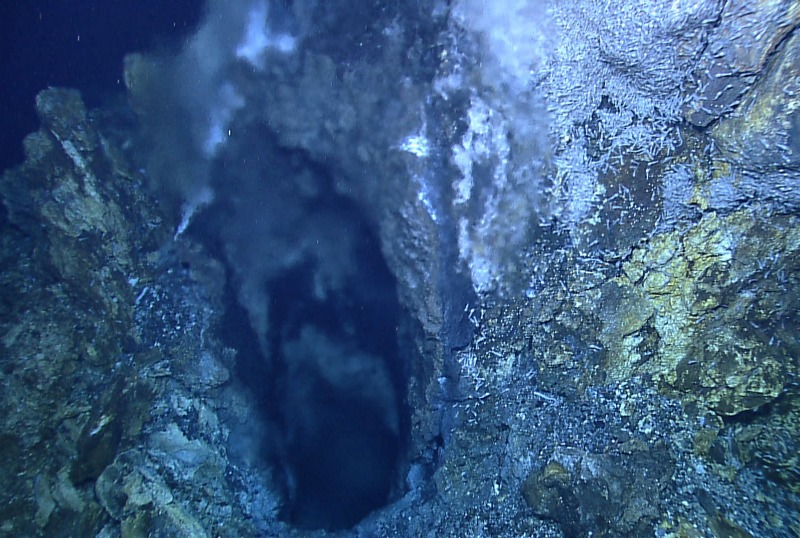
Did Life Start in a Pond, Not Oceans?

Life may have gotten its start inland, inside ponds of volcanic condensate, not in the oceans.
Modern life is more chemically compatible with conditions in venting geothermal fields, such as Yellowstone National Park, than in the ocean, even a primitive ocean, new analysis shows. The finding challenges a widely accepted theory that modern life began in a marine environment.
The study, led by biophysicist Armen Mulkidjanian with Osnabruck University in Germany, suggests life evolved inside cooled inland ponds formed from condensation from volcanic activity deep inside the Earth. Life later would have spread into the oceans.
Stoking scientists’ interest in the chemical origins of life is a long-standing puzzle about why it has such high amounts of potassium, relative to the amounts of sodium.
NEWS: Antarctic Hot Springs Yields New Creatures
“The basic question is whether the observed high potassium-sodium ratio reflect the historical environment in which life originated or underwent early evolution, or instead reflects some underlying chemical necessity, such as better functioning of certain cellular components, such as RNA or protein enzymes in a high potassium environment,” Harvard Medical School biologist Jack Szostak wrote in an email to Discovery News.
The new research provides a possible explanation for the potassium-sodium mismatch. Scientists say the composition of inorganic ions in all modern cells matches the chemistry of geothermal vapor condensate -- not the ocean.
Get the world’s most fascinating discoveries delivered straight to your inbox.
If this vapor condensed into ponds filled with carbon, nitrogen, phosphate and other building blocks for life, the environment would have been a natural starting point for cells to evolve biochemical processes, the scientists say.
In contrast, water of the early oceans should have contained 40 times more sodium than potassium, among other conditions not conducive to the origin of the first cells, Mulkidjanian wrote in an email to Discovery News.
“We have proposed that protocells evolved in habitats with a high potassium-sodium ratio and relatively high concentrations of zinc, manganese and phosphorous compounds,” he said.
To suggest otherwise, he added, means that the first cells already had sophisticated membranes as well as the enzymes to transport and/or block ions.
“We believe that it is too much of a stretch,” Mulkidjanian wrote. “The scenario that we suggest is physically and geochemically plausible.”
There are other factors favoring ponds for life’s start as well, such as lower salt concentrations.
“The accumulation of organic compounds in endorheic (free-standing) ponds is also easier to imagine than in the ocean, and geothermally active areas provide numerous advantages,” Szostak said.
Mulkidjanian’s research was published earlier this month in the Proceedings of the National Academy of Sciences.
This story was provided by Discovery News.
 Live Science Plus
Live Science Plus





